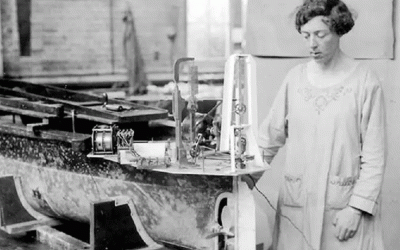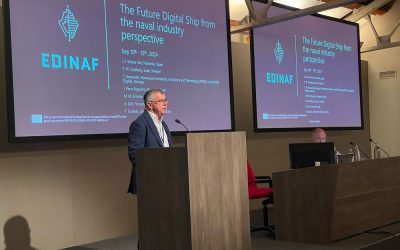The Naval Architect: March 2020
In a company press release in October 2019, Stena Bulk president Eric Hånell stated his belief that ageism against tankers over 15-20 years old not only jeopardised safety at sea but will also prevent the implementation of new fuels that are crucial for reaching long-term environmental goals. Speaking in Denmark earlier this month, he elaborated further.
Hånell proposed that customer fixation on historical accidents is largely responsible for age discrimination towards older ships, and he argued that the sound condition of vessels is irrespective of age. “If you look at oil spills and accidents in the world today it’s not from older ships but younger ships. It’s more the way you run and maintain them,” he claimed.
Stena Bulk is part of the Stena AB Group conglomerate, which has a designated inhouse R&D division that Hånell said is expensive to run and struggles to make plans since funds must be redirected into priority areas, such as financing newbuilds. “It’s not cheap and when you’re testing there may be 9-10 things that are not working. You hope to learn a lot from that process but to get a real payback you have to be able to think long term.”
The requirements and guidelines concerning tanker age are often complex and differ depending upon the charterer and its relationship with the tanker operator. According to its website, BP Shipping does not charter chemical or oil tankers larger than 5,000dwt that are older than 20 years. For vessels smaller than 5,000dwt and LPG carriers the upper age limit is 25 years, with a 40 year limit for LNG carriers.
Some measures used to quantify the safety of older tankers are already in place, such as the Condition Assessment Programme (CAP). Classification society ABS states that CAP is a recognised method for shipowners to show the quality and suitability of a vessel for charter. However, Hånell thinks charterers are less interested in older ships with proven, operational experience than newer models, leaving tanker companies with little choice but to dispose of working vessels.
“There are restrictions in the market, and everyone wants all the options in the world when they have a cargo onboard, but they need approval from all the different customers. Based on that, to run a tanker with high-class customers the ships are basically dead at 20 years,” he concluded.
Moreover, the cost of meeting the standards set for older ships are so high that the decision to scrap well-functioning ships becomes a simple one. “For a special survey, investments could cost up to US$6-7 million and you still don’t know if you can trade them or not. You can hope for the best and just lay them up and hope the world changes, but that costs as well.”
Stena Bulk is also reluctant to purchase new vessels due to the rapid developments and changes in the shipping industry. Hånell stated: “Today I would not go and order a new ship. It’s not that it’s expensive, in fact order prices are quite reasonable, but who knows what technology is going to be valid five years from now?”
Although Hånell remained coy on the specific technical solutions Stena Bulk could provide, he suggested that keeping technologically current and improving efficiency through the retrofitting of older ships could prove more advantageous than ordering newbuilds, given the fluctuating market. “It’s probably easier to look at existing ships than to plan to put something onboard a ship that will be delivered 2-3 years from now. You can take a quick decision then install it. That would speed up the development and innovation of all kinds of equipment,” he argued.





